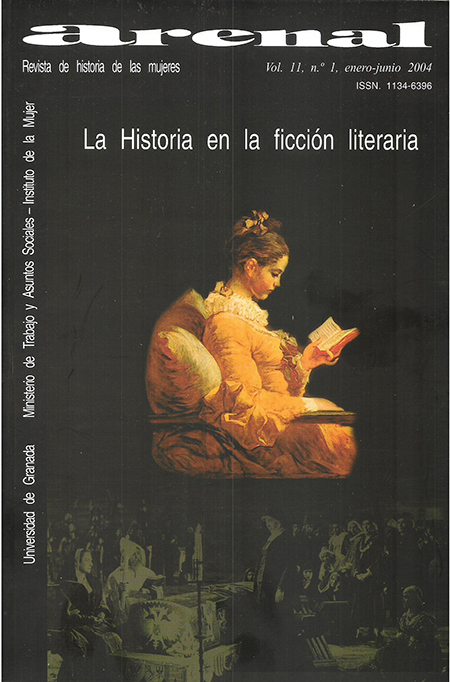Sumisión y obediencia al marido: el ideario de la Sección Femenina
DOI :
https://doi.org/10.30827/arenal.v11i1.16185Mots-clés :
Violencia de género, Creencias misóginas, Sección FemeninaRésumé
Las autoras somos profesoras de Psicología y trabajamos en el análisis de la violencia de género y sus causas. Según nuestra hipótesis, en el origen de la violencia contra las mujeres están las creencias misóginas, las creencias sobre la inferioridad "natural" de las mujeres, empleadas tanto para justificar el sometimiento, como el castigo a las transgresoras del orden establecido.
El régimen franquista, a través especialmente del control ejercido por la Sección Femenina durante más de 40 años, contribuyó a articular y transmitir un férreo discurso sobre el rol de la mujer. Se la consideraba como sacrificada cuidadora de la familia, como figura obediente y sumisa a la autoridad del varón. Este discurso, del que presentamos numerosos ejemplos, no es ni puede ser considerado ajeno a la violencia de género y al maltrato de mujeres presentes en nuestra sociedad actual.
Téléchargements
Téléchargements
Publié-e
Comment citer
Numéro
Rubrique
Licence
Los/as autores/as que publican en esta revista están de acuerdo con los siguientes términos:
Los autores/as conservarán sus derechos de autor y garantizarán a la revista el derecho de primera publicación de su obra, el cuál estará simultáneamente sujeto a la Licencia de reconocimiento de Creative Commons 4.0 BY-NC-ND que permite a terceros compartir la obra siempre que se indique su autor y su primera publicación esta revista.
Los autores/as podrán adoptar otros acuerdos de licencia no exclusiva de distribución de la versión de la obra publicada (p. ej.: depositarla en un archivo telemático institucional o publicarla en un volumen monográfico) siempre que se indique la publicación inicial en esta revista.
Se permite y recomienda a los autores/as difundir su obra a través de Internet (p. ej.: en archivos telemáticos institucionales o en su página web) antes y durante el proceso de envío, lo cual puede producir intercambios interesantes y aumentar las citas de la obra publicada. (Véase El efecto del acceso abierto).


















